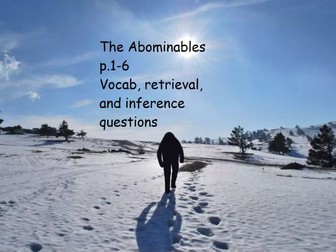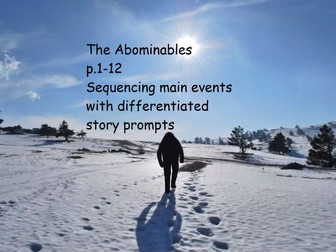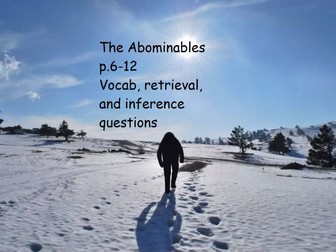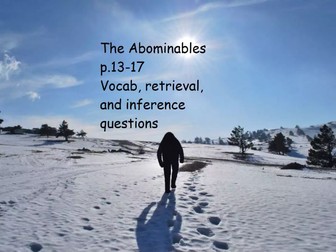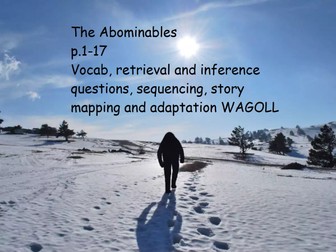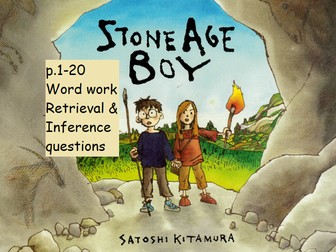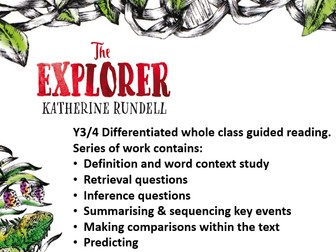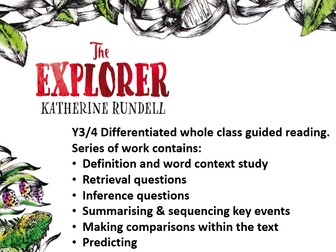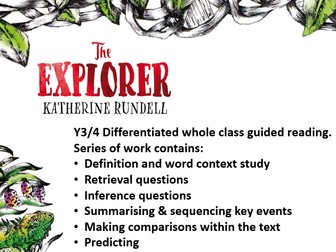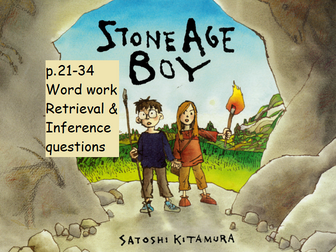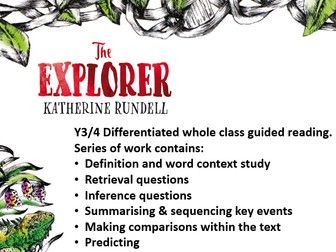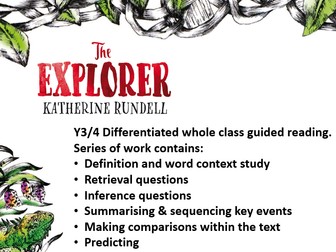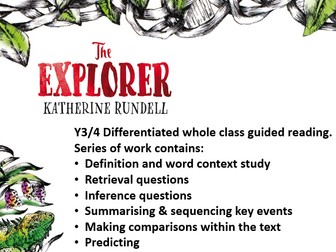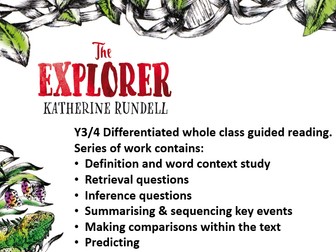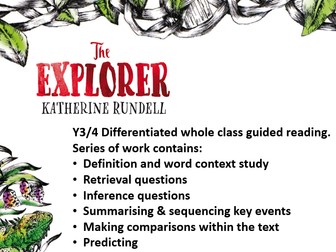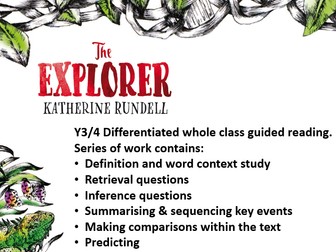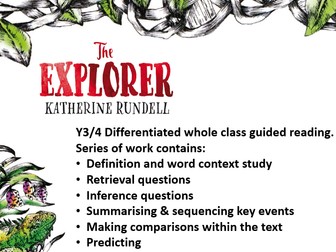Y3 / Y4 The Abominables opening - Story mapping example and WAGOLL adapted story introduction
<p>Y3 / Y4 The Abominables (by Eva Ibbotson) opening - Story mapping example and WAGOLL adapted story introduction and self assessment / peer assessment sheet.</p>
<p>Once the children know the story opening well (following on from p.1-17 activities and questions along with sequencing activity - see separate resource) they should be able to map out the key events in the story using pictures.</p>
<p>The story map can then be adapted using post it notes to change key details (see inside for example).<br />
There is then an example story opening WAGOLL in which a boy falls overboard from a cruise ship and is stranded on an island.</p>
<p>Finally, there is an editable self and peer assessment sheet.</p>
<p>Required text extract is available for free download at LoveReading.</p>

